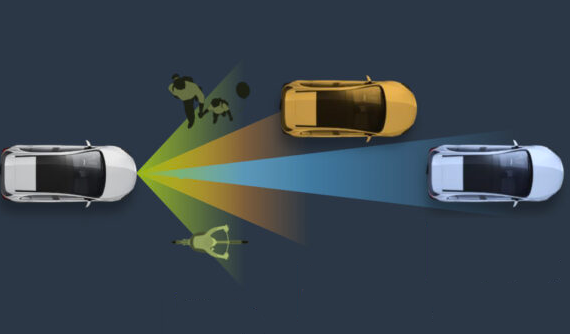Signal processing for environment-aware radar (SPEAR)
In future automotive radar systems, multiple mmWave radars are networked and should enable high-resolution localization and obstacle detection. To this end, the sensors are equipped with advanced communication and multi-modal sensing capabilities. Existing radar sensing solutions, however, are not designed to leverage this connectivity and sensing infrastructure. The project will address this gap by developing advanced signal processing algorithms that make the best use of the available infrastructure.
The project looks at distributed signal processing on radar data using the communication backbone network. The goal is to exploit vehicular connectivity to enhance perception in mixed traffic conditions where vehicles have varied sensing capabilities.
The SPEAR project comprises 4 PhD sub-projects:
- Digital mmWave radar waveform design and algorithms: develop advanced algorithms and waveforms for next generation automotive networks.
- Interference-aware distributed radar sensing: reduce the impact of interference caused by multiple radars with overlapping field-of-view.
- Multimodal sensing for automotive radar: exploit situational awareness from multiple sensors (GPS, LiDAR, radar, ultrasound), automotive control, and navigation control units.
- Surface-aided radar sensing: new signal processing algorithms for radar sensing assisted by reflective intelligent surfaces for extended target detection

Project data
| Researchers: | Geethu Joseph, Nitin Myers, Peiyuan Zhai, Rupam Chakraborty |
|---|---|
| Starting date: | February 2023 |
| Closing date: | February 2027 |
| Funding: | 2000 kE; related to group 1000 kE |
| Sponsor: | NXP, TKI |
| Partners: | NXP |
| Contact: | Geethu Joseph |